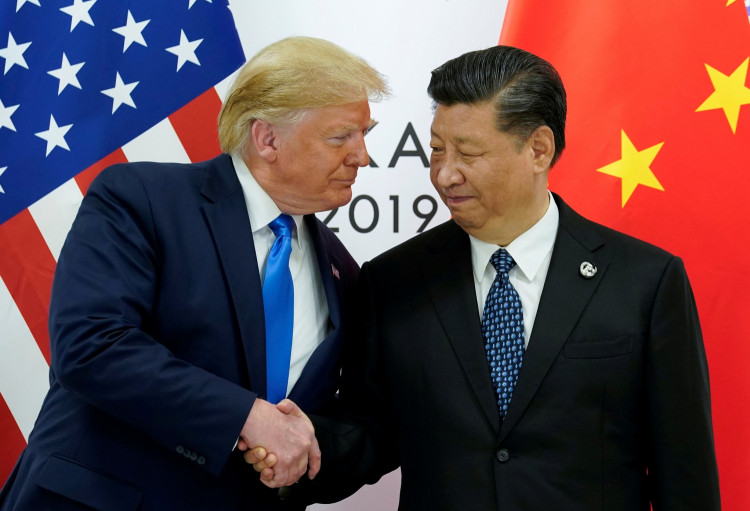China's government has responded swiftly and forcefully to President Donald Trump's latest escalation of tariffs, imposing sweeping countermeasures while signaling to domestic and global audiences that it is prepared for a prolonged trade war. The tit-for-tat escalation marks a sharp deterioration in relations between the world's two largest economies and is triggering widespread volatility in global markets.
On Friday, China imposed a 34% tariff on all U.S. imports, mirroring the additional 34% duty the Trump administration announced earlier in the week. The Chinese government also rolled out new export restrictions on rare earth minerals, suspended imports of agricultural products from specific U.S. firms, and filed a case at the World Trade Organization. These steps follow two earlier rounds of 10% tariffs from the U.S. in February and March.
"Putting 'America First' over international rules harms the stability of global production and the supply chain and seriously impacts the world's economic recovery," said Chinese Foreign Ministry spokesperson Lin Jian on Monday. "Pressure and threats are not the way to deal with China. China will firmly safeguard its legitimate rights and interests."
The escalation has sent Asian markets tumbling. Hong Kong's Hang Seng Index plunged 13.2% on Monday in its worst one-day performance since the 1997 financial crisis. The Shanghai Composite fell 7.3%. Despite the turmoil, China is projecting a message of resilience. "US tariffs will have an impact (on China), but 'the sky won't fall,'" declared the People's Daily, the ruling Communist Party's official mouthpiece.
"Since the U.S. initiated the trade war in 2017 - no matter how the U.S. fights or presses - we have continued to develop and progress, demonstrating resilience," the paper said. "The more pressure we get, the stronger we become."
Vice Commerce Minister Ling Ji met with representatives from 20 U.S.-funded companies, including Tesla and GE HealthCare, over the weekend, urging them to "be rational voices" and "take practical actions" to maintain global supply chain stability. "The root of the tariff problem is in the U.S.," Ling said. "We hope the American companies can address the problem at its root."
Chinese leaders are also casting the crisis as an opportunity. "China is sending a significant message to the world: we cannot back down or tolerate U.S. bullying, as tolerance ultimately leads to more bullying," said Liu Zhiqin, senior researcher at the Chongyang Institute for Financial Studies at Renmin University.
Beijing's confidence, analysts say, stems in part from a belief that Trump's approach will hurt American credibility more than China's. "Many [People's Republic of China] counterparts have argued [the] U.S. is making a mistake that will undermine its own global standing," Ryan Hass, senior fellow at the Brookings Institution, wrote on X after meetings in China.
Chinese leaders are also framing the trade war as a broader contest over global economic leadership. "China and the U.S. are now direct rivals in reshaping the international trade order," said Ju Jiandong, professor at the People's Bank of China School of Finance. "We're ready to compete with the U.S. in redefining the new global trade system."
But the costs are already being felt. Goldman Sachs analysts estimate the new tariffs could shave at least 0.7 percentage points off China's GDP growth this year, and anticipate that policymakers "will accelerate easing measures significantly" to meet the government's 5% growth target.
The U.S.-China trade standoff also has ripple effects beyond the two countries. Southeast Asian economies, many of which are manufacturing hubs for global firms, are grappling with declining export demand and increased uncertainty. Japan, South Korea, and the European Union have also been hit by steep new U.S. tariffs in recent weeks.
In Singapore, Prime Minister Lawrence Wong warned of a "seismic change in the global order." In a weekend address, he stated, "The era of rules-based globalization and free trade is over. We are entering a new phase, one that is more arbitrary, protectionist and dangerous."
Despite state media's confident tone, Beijing is bracing for further escalation. The central government has promised to "vigorously boost domestic consumption with extraordinary efforts," according to the People's Daily, and may roll out reserve policy tools to stabilize growth.






